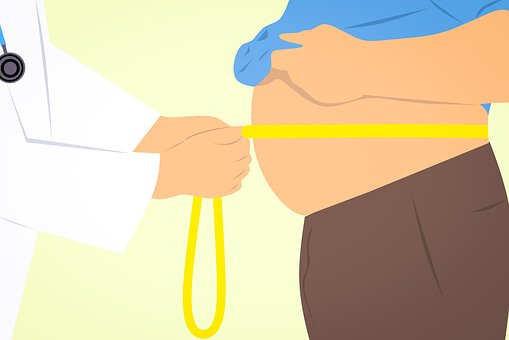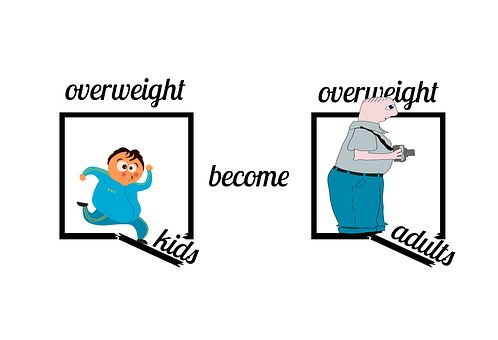Obesity And Tips To Reduce Your Weight

Obesity is a medical condition that happens when someone carries excess or abnormal amount of body fat that might affect their health. It is a worldwide health concern caused by many factors. To diagnose obesity, you can calculate your body mass index (BMI) by dividing your weight in kilograms by your height in meters. A healthy BMI ranges from 17.5 – 25 kg/m2. A person with a BMI of 30 or more is considered obese, while a person with a BMI 25 or more is considered overweight.
There are various causes of obesity. Genetic, behavior, and hormone can influence your body weight, but obesity mainly happens when you take in more calories than you burn. Medical problems, such as Prader-Willi syndrome and Cushing’s syndrome, can also cause obesity. However, the common causes of obesity are inactivity and unhealthy eating habits.

https://pixabay.com
Obesity is not just a cosmetic concern because it increases your risk of health problems, particularly heart disease, high blood pressure, and diabetes. Obesity can also affect your quality of life because you may not be able to enjoy things you used to do. Other issues such as depression, disability, social isolation, shame, guilt, and sexual problems can also occur. Fortunately, it is treatable and manageable. Even a little weight loss can improve your health and prevent health problems associated with obesity. When you’re extremely obese, losing weight can reduce medical problems. It can reduce the risk of stroke, plasma glucose, and sleep apnea. Taking action to lose weight may seem overwhelming for a lot of people, but there are many steps you can take to get healthier. The following are some tips to reduce your weight.
- See a healthcare provider. Seeking advice from a healthcare provider can help you manage obesity. Treatment plans can be different for each individual, and a professional will help you find out which weight management program will suit you best. Many options are available, and a professional often recommends you to combine the treatments.
- Change your diet. To lose weight, you need to reduce the number of calories you consume. You can start by tracking everything you eat. Focus on low-calorie, nutrient-dense foods, such as vegetables, fruits, and whole grains. Limit your sweets and alcohol intake and eat three regular meals a day. You may enjoy small amounts of high-fat foods once in a while, but make sure you always choose healthy foods most of the time.

https://pixabay.com
- Physical activity. Try to have a more active life. However, you should only do vigorous exercise after you have reached a minimum of 10% weight-loss goal. You should also check with your healthcare provider before adding any physical activity because some people with obesity may have health problems such as heart disease and arthritis that could get worse by exercise. Start by taking a walk around the block or park. Remember to always make it simple, realistic, and fun.
- Get a good night sleep. Lack of sleep (or too much sleep) is linked to obesity. It can cause changes in hormones that increase your appetite, which leads to increased energy consumption.
- Medication. To help with weight loss for extreme obesity, some people can use medications. Nevertheless, medication can be expensive and come with side effects.
- Surgery. Sometimes, changing your diet, taking medication, getting enough sleep, and adding more physical activities can’t help you lose significant weight. In this case, you can opt for bariatric surgery. Note that the surgery still requires lifestyle changes and medication, and you need to be healthy enough to undergo the procedure.
Some people can change their lifestyle and lose weight on their own, but others may need extra help. Having a support system can help encourage you and keep you on track. Ask your family to help you, join a weight-loss support group, or go to one-on-one therapy. Remember that health is a lifestyle, not a size. So you should not become discouraged and punish yourself for it. Even losing weight as small as 5% to 10% can improve your health. It will take time, and you may face many hardships, but remember that being healthy is the goal.